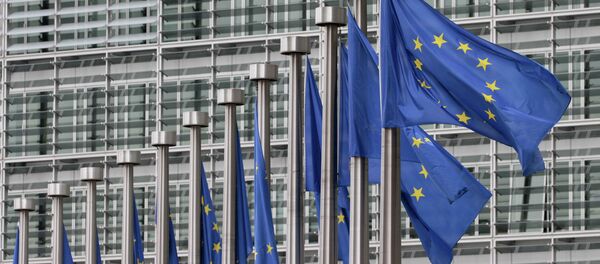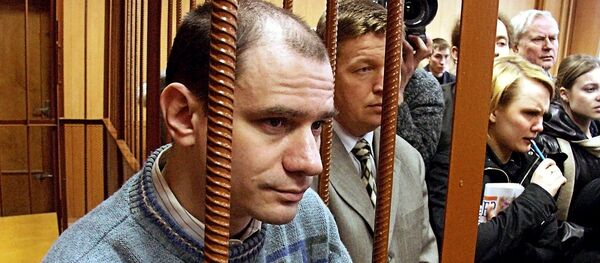The Anonymous hacktivist group has published documents according to which the UK government has been financing the so-dubbed Integrity Initiative program, directed at keeping up the anti-Russian rhetoric in the UK and beyond, as well as outlining the concrete tasks that the regional clusters of the project were entrusted with.
Stage 1
According to the open-source files, analysed by the founder of Telegram channel 338, the agenda first and foremost stipulates an in-depth analysis of the area that this or that hacking group specializes on, and which can further be applied in the segment RU (information attacks on the Russian-speaking population of the region.)
Stage 2
Cluster leaders and participants head for courses in so-called study and research centres, namely IREX, Detector Media, StopFake, EUvsDisinfo, LT MOD Stratcom and Bellingcat, which virtually function as media centres exploited by Western intelligence services to prepare agents for a hybrid war against Russia.
Stage 3
All participants are at some point sent to the US for briefings and experience exchanges. The global aim at this stage is the creation of an extensive decentralized network, with techniques meant for the media-sphere being tested and approved.
Stage 4
This stage comprises the use of software on the platform NationBuilder for internal communication of an international audience. This is effectively a special campaign that includes sending emails and the joint regional resource that works with the platform.
The budget files are of special interest, since sums appear to be earmarked for the communication between regional representatives, Kiev, for instance and the cyber-regiment of the British army, brigade 77 in particular. Hence the goals: the focus is on having regional military servicemen partake in events where they’ll be told how bad Russia is, and will additionally be instructed on how to battle Russia in the minds of their colleagues citing “the threats of a hybrid war.”
This document, for instance, is especially noteworthy: the document features the date April 2018; however, it already includes Skripal-connected media attacks.
Clusters’ Management Highlights
The clusters in question are headed by those people, who have on more than one occasion been referred to by Western media as possible agents of UK intelligence and other Western special services: for instance, the head of the German cluster, Harold Elletson, a still active intel agent boasting a vast 30-year work experience, is known to have partaken in a series of special ops in Yugoslavia.
Each cluster’s management comprises a head, deputy head and top managers of three different departments, all of whom assign some particular tasks to politicians, bloggers and regional mass media figures.
Those networks cover propaganda both in social networks and traditional mass media, with their work being promoted by such top institutions as for instance, NATO’s parliamentary assembly, joint confederation of reserve officers, the Baltic Defence College, and NATO’s headquarters.
Cluster work on media attacks against Russia comprised the following spheres:
• organised crime and corruption
• money laundering
• Oligarchs’ influence
• financing extreme left and right-wing political parties
• military sports and sport clubs
• Russian Orthodox Church
• classic measures (dirty tricks, russ. “mokriye dyela”)
When skimming through a list of persons connected with the regional clusters, one would notice that most of them are top pro-file politicians or civil servants: for instance, with Spain it is Nico de Pedro, who heads the cluster and represents The Institute for Statecraft, Eduardo Serra Rexach, former defence minister in Jose Maria Asnara’s government and currently a businessman, Fernando Valenzuela Marzo, Spain’s minister of foreign affairs etc.
Emails of almost all the French representatives correspond to those of foreign ministry’s employees, such as Thomas Bertin’s (National Human Rights and National Security Secretariat) and Raphael de Lagarde’s (France’s Foreign Ministry.)
Meanwhile, according to the files, the cluster head’s revenues amount to about £ 8,100 a month; research and staff coordinators are paid nearly 25 percent less.
READ MORE: Anonymous Claims Ex-Russian Spy Scholar Enlisted to UK Info Warfare Project
So, the files shed light on UK-financed extended network schemes aimed at undermining Russia’s reputation abroad, with the said clusters involving not only ordinary EU servants, but official foreign ministry figures, intel officers and NATO’s top managements, as well as famed academics from European institutions. The network participants openly report on the results of their work, using email and WhatsApp, in particular on their meddling in governmental appointments in Spain, apparently in violation of the country’s sovereignty, amid multiple accusations of Russia carrying out its “troll attacks” and persisting in a “hybrid war.”
"Purpose: To counter Russian disinformation and malign influence, and associated weapons of ‘Hybrid warfare’, in Europe and North America by: expanding the knowledge base; harnessing existing expertise, and; establishing a network of networks of experts, opinion formers and policy makers, to educate national audiences in the threat and to help build national capacities to counter it," the document issued as early as in April 2017 reads.




